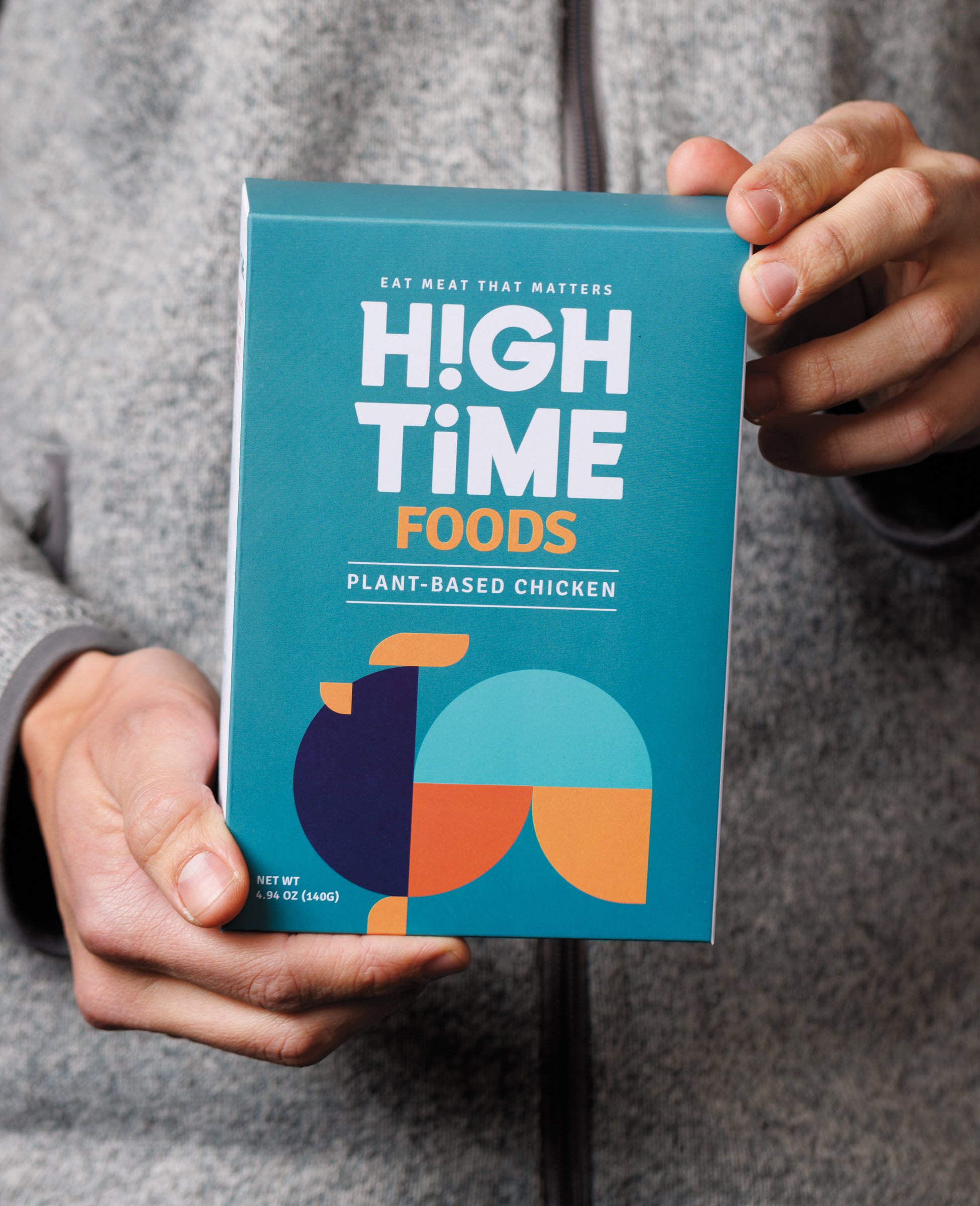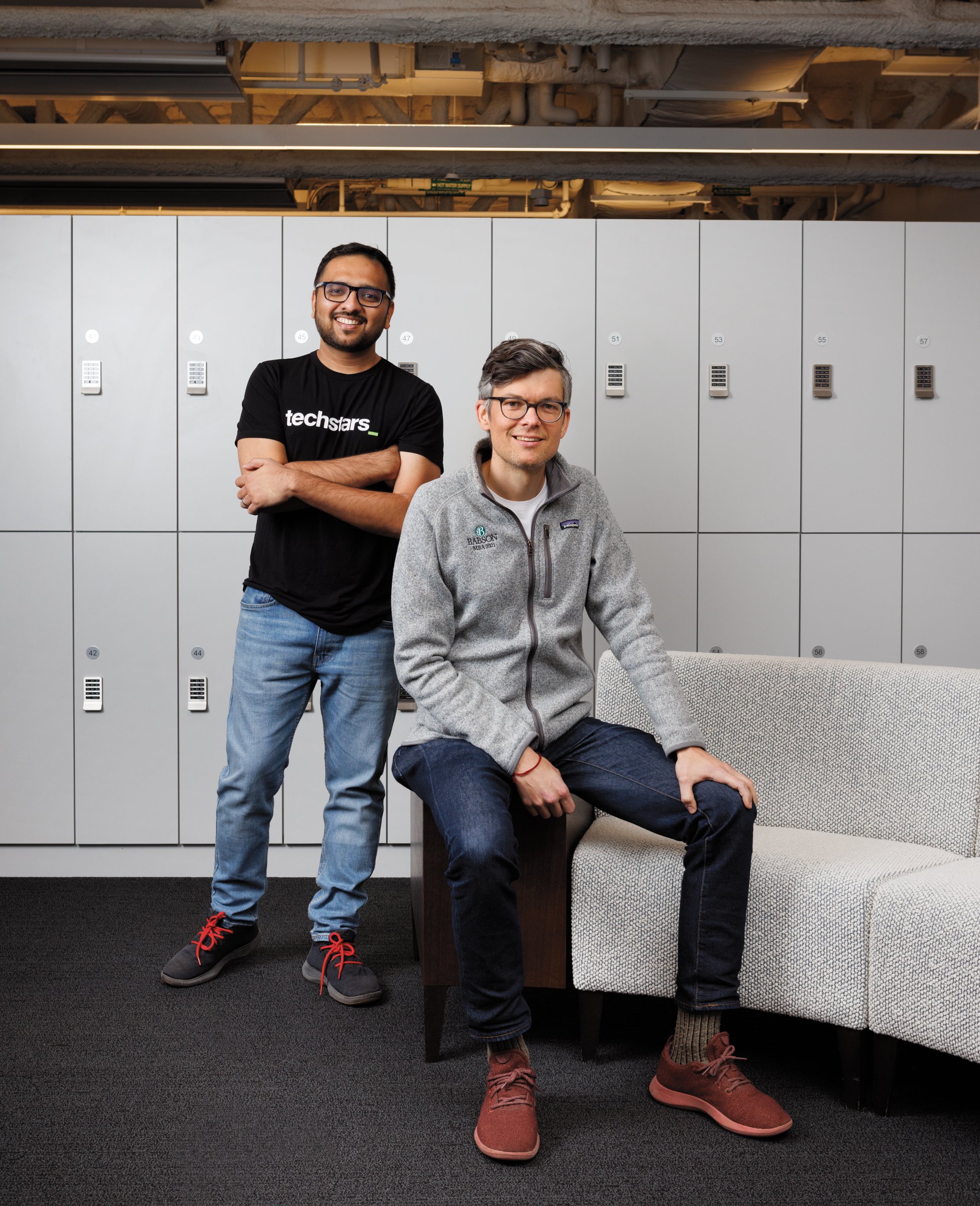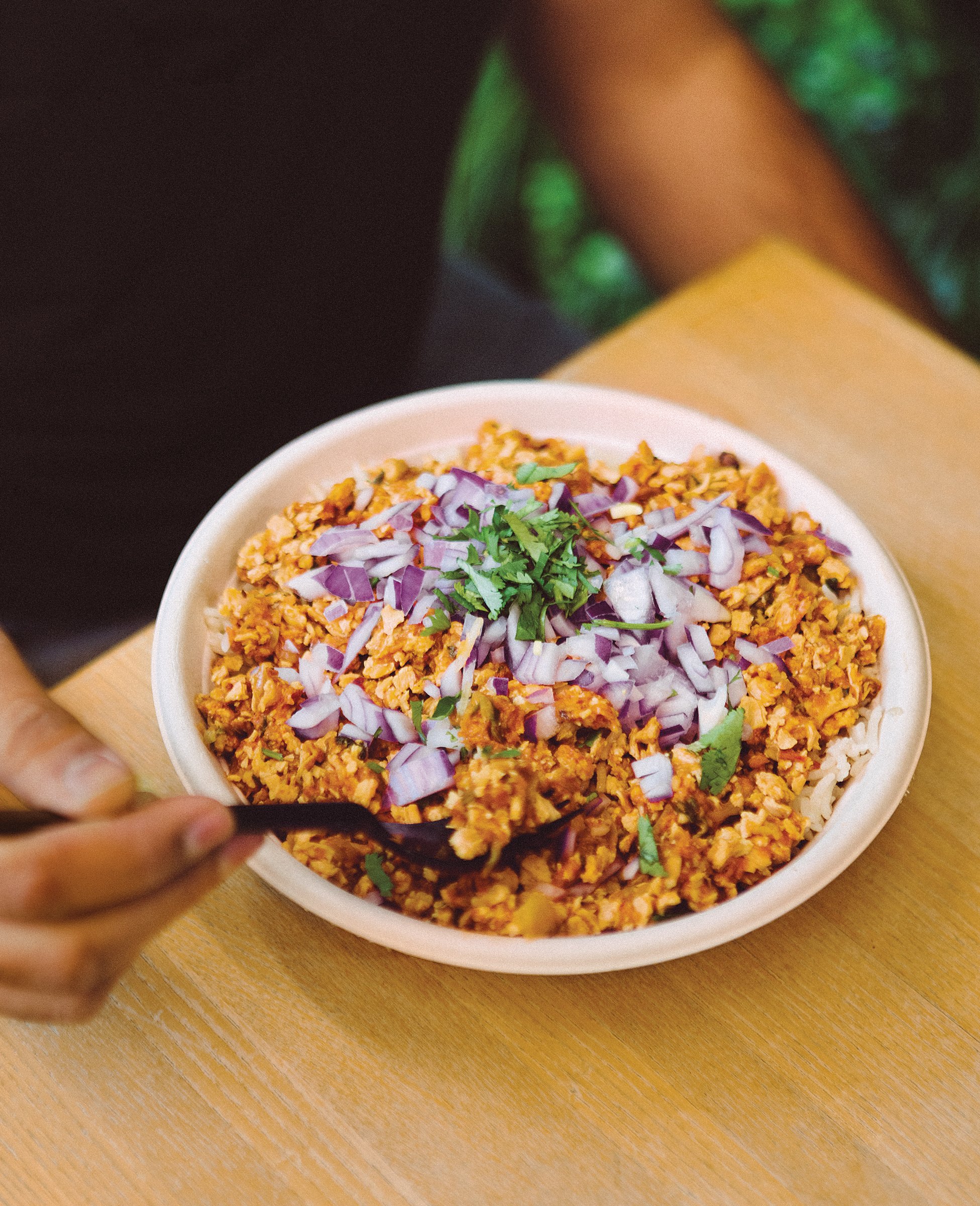Edible Food Find: High Time Foods
Photos by Adam DeTour
When you think of plant-based protein, flavorless tofu nuggets or frozen veggie patties might come to mind. But there’s a new option in Massachusetts restaurants and on college campuses, offering something appealing, tasty and versatile to fit different cuisines or appetites. And it’s about to get more popular as it breaks stereotypes about what plant-based should be.
High Time Foods is a plant-based chicken alternative with 19 grams of protein per serving. It’s made of peas, wheat and mung bean (a high-protein legume), and doesn’t require refrigeration, so it’s well-suited to climates with limited power. Since an estimated 3.5 billion people globally lack reliable electricity, this product can provide a source of nutrition in areas without a cold supply chain or access to groceries—including places in Massachusetts and New England.
Just add eight ounces of cold water and two tablespoons vegetable oil, and the product is ready to be molded, diced or shredded into any shape or size to suit any dish, from tacos to stir-fries or Bolognese sauce. Plus it’s made in Massachusetts, which bolsters the local economy.
Co-founders and Babson College alums Aakash Shah and Damian Felchlin dreamed up this product in graduate school after working in food service and operations. A deep concern about the global impact of food production, food waste and food insecurity led them to develop this with chefs because they felt it was “high time” for a solution.
“I learned about meat, about its impact on the environment, on land and water, and I was extremely curious,” says Shah. He investigated the plant-based-foods marketplace in the United States, including products like Beyond Meat, for a class project. He says chefs told him they’re tired of using “burger” patties, while students requested more plant-based products across cuisines, more than salad or the same plant-based patty or nugget.
“I was able to understand how and when plant-based meat can be mainstream, and how it can shift from being this cute little thing on a special menu to actually being consumed in bulk, and in places where food is consumed by the masses, and not just at the Eleven Madison Parks of the world,” says Shah, who is native to India and insisted that ingredients be sourced and manufactured domestically.
High Time Foods launched in 2022 with service in restaurants and colleges around the Bay State, largely in Boston and its suburbs,. Koshari Mama in Somerville offers Egyptian vegan street food, and serves High Time Foods in its kofta (like a kebab) and sambusak (like a dumpling) dishes as a replacement for ground beef.
“We’re continuously working to prepare other dishes with it. There’s so many options. It can be made into a tomato-based sauce served with pasta, and it comes out delicious,” or they’re trying it grilled rather than fried, says chef and owner Sahar Ahmed. “The more products available that can substitute meat, the better. And I think that the way this product is made also is great because it doesn’t have junk in it. It’s a good clean product, it’s non-GMO. I love that you can use it in so many different ways, and that gives us more creativity.”
Shah continues experimenting, too. On the horizon, High Time Foods may become less expensive, available to more restaurants as well as gluten free, manufactured in chunks and sold in the retail marketplace. Until then, he remains committed to solving the global nutrition crisis from the Commonwealth.
“People who are food insecure consume less protein. They have access to products with excess sugar and carbs, so it’s not great for their health. Most people now are creating plant-based meat products for one demographic, and one sort of cuisine, and it wasn’t something that could be scaled globally. Something that was very, very dear to me and Damian: We’re hoping that someday our solution can be used to solve global problems like hunger and malnutrition. And that’s why we came to a product that is shelf stable,” Shah says. “So we’re using plant-based not just as a means to satiate the hunger of vegan customers. We’re also using plant-based to solve this protein deficiency across the world.”
hightimefoods.com
kosharimama.com
This story appeared in the Spring 2024 issue.



